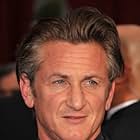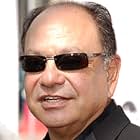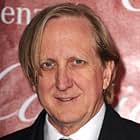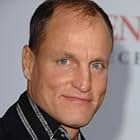IMDb RATING
6.3/10
267
YOUR RATING
Director Michael Almereyda's documentary on the weeks just prior to Sam Shepard's stage production of his play "The Late Henry Moss."Director Michael Almereyda's documentary on the weeks just prior to Sam Shepard's stage production of his play "The Late Henry Moss."Director Michael Almereyda's documentary on the weeks just prior to Sam Shepard's stage production of his play "The Late Henry Moss."
- Awards
- 1 nomination total
Featured reviews
Documentary about Sam Shepard and the star studded production of Shepard's play the Late Henry Moss.
This was one of the choices on IFC in Theaters cable service and since I'm a huge theater fan as well as a fan of most of the people involved I figured I would give the film a shot. While its great to see how play is rehearsed and put together I found it all very disjointed and ultimately a mess. I know part of my problem going in was that I was completely unfamiliar with the play. Now having seen this film I feel I'm considerably less so. I'm sure that had I had some clue as to what the play was about the scenes we see being worked on might have had some resonance, instead of just seeming to be random.Many people have compared this to Looking For Richard, Al Pacino's film about Richard the Third, while that film had what seemed like random scenes, the play is part of our cultural heritage and so the plot is known by most people. Also that earlier film deals with Shakepeare and interpreting the Bard, things are put into a context. Thats not the case here. Here we have a good many talking heads talking about the production, Shepard, and Shepard's plays, and the autobiographical nature of what Shepard writes (and biographical stories). Its a jumbled mess that never really seemed to come together. Half an hour in I started to fast forward. It just never grabbed me or made me know what I was watching.
A miss.
This was one of the choices on IFC in Theaters cable service and since I'm a huge theater fan as well as a fan of most of the people involved I figured I would give the film a shot. While its great to see how play is rehearsed and put together I found it all very disjointed and ultimately a mess. I know part of my problem going in was that I was completely unfamiliar with the play. Now having seen this film I feel I'm considerably less so. I'm sure that had I had some clue as to what the play was about the scenes we see being worked on might have had some resonance, instead of just seeming to be random.Many people have compared this to Looking For Richard, Al Pacino's film about Richard the Third, while that film had what seemed like random scenes, the play is part of our cultural heritage and so the plot is known by most people. Also that earlier film deals with Shakepeare and interpreting the Bard, things are put into a context. Thats not the case here. Here we have a good many talking heads talking about the production, Shepard, and Shepard's plays, and the autobiographical nature of what Shepard writes (and biographical stories). Its a jumbled mess that never really seemed to come together. Half an hour in I started to fast forward. It just never grabbed me or made me know what I was watching.
A miss.
The documentary "This So-Called Disaster" is a behind-the-scenes look at the making of Sam Sheppard's semi-autobiographical play "The Late Henry Moss," which debuted in San Francisco in 2000. Being himself the son of an alcoholic father, Sheppard drew upon his own personal experience for this cathartic tale of two brothers' coming to terms with the death of their own alcoholic father. The actors in this production include Sean Penn, Nick Nolte, Cheech Marin and Woody Harrelson. As Penn says at one point, Sheppard's plays often deal with the theme of men trying to forge their identities in a world with no clear-cut definition of what a man is supposed to be. This theme filters through in both the snippets of the play we see being worked on in the rehearsals and in the on-camera interviews with Sheppard and many of the principal performers in the production.
It's a tribute to both the power of Sheppard's writing and the talent of the actors playing the roles that we find ourselves wanting to see this play merely from the glimpses we get of it in rough-cut form. Anyone interested in playwriting and fine acting will be mesmerized by the nuts-and-bolts aspects of this film, as it shows us just how a theatrical work, involving some of the greatest talents in modern drama, ultimately comes to fruition.
It's no "Looking for Richard," but "This So-Called Disaster" has much to offer the serious theaterphile.
It's a tribute to both the power of Sheppard's writing and the talent of the actors playing the roles that we find ourselves wanting to see this play merely from the glimpses we get of it in rough-cut form. Anyone interested in playwriting and fine acting will be mesmerized by the nuts-and-bolts aspects of this film, as it shows us just how a theatrical work, involving some of the greatest talents in modern drama, ultimately comes to fruition.
It's no "Looking for Richard," but "This So-Called Disaster" has much to offer the serious theaterphile.
This So-Called Disaster basically documents the pre-production of Sam Shepard's 2000 play, `The Late Henry Moss', from about the third week of rehearsals to opening night. The movie is overall very engaging in its presentation of the featured actors involved, and because the visual style makes the viewer feel as though they were in the audience during the play's preparations.
Because `Henry Moss' is partially autobiographical, this movie provides some scenes of Shepard providing anecdotes about growing up with his father. I liked these scenes very much, because Sam Shepard's relationship with his father did was not typical of some relationships that alcoholic fathers had with their sons. There is a sense that Shepard accepted the way in which his father acted while drunk, and did not seem to have too much of a problem maintaining a relationship with him.
But the parts of Disaster that I particularly liked were everything involving the rehearsals of the play. It is very interesting to see the contrasting styles of preparation seen in the different actors, such as Nick Nolte, Sean Penn, Cheech Marin, Woody Harrelson, and John Gammon. It was amazing to see that these actors were able to nail their performances every time they rehearsed their lines.
Along with their preparations, I was able to see these people in a much different light than I ever had before. In this movie, I wasn't seeing Sean Penn, bad boy actor, or Nick Nolte the oddball (though he does have his moments). The actors in the play are presented in this movie as people who are actors, not Hollywood movie stars.
Michael Almereyda does the viewer a favor by keeping the camera pretty much stationary throughout the picture. Early on, I thought I had to prepare myself for some sort of home video visual style, which is very amateurish in that it shakes all over the place and never settles down. But thankfully, the camera allows the audience to see this movie as though they were in the theater, watching people like Penn, Nolte, and others get ready for their performances.
Because `Henry Moss' is partially autobiographical, this movie provides some scenes of Shepard providing anecdotes about growing up with his father. I liked these scenes very much, because Sam Shepard's relationship with his father did was not typical of some relationships that alcoholic fathers had with their sons. There is a sense that Shepard accepted the way in which his father acted while drunk, and did not seem to have too much of a problem maintaining a relationship with him.
But the parts of Disaster that I particularly liked were everything involving the rehearsals of the play. It is very interesting to see the contrasting styles of preparation seen in the different actors, such as Nick Nolte, Sean Penn, Cheech Marin, Woody Harrelson, and John Gammon. It was amazing to see that these actors were able to nail their performances every time they rehearsed their lines.
Along with their preparations, I was able to see these people in a much different light than I ever had before. In this movie, I wasn't seeing Sean Penn, bad boy actor, or Nick Nolte the oddball (though he does have his moments). The actors in the play are presented in this movie as people who are actors, not Hollywood movie stars.
Michael Almereyda does the viewer a favor by keeping the camera pretty much stationary throughout the picture. Early on, I thought I had to prepare myself for some sort of home video visual style, which is very amateurish in that it shakes all over the place and never settles down. But thankfully, the camera allows the audience to see this movie as though they were in the theater, watching people like Penn, Nolte, and others get ready for their performances.
"This So-Called Disaster" (the on-screen credits had an additional, secondary title that I can't find documented on line) is a fascinating look at the rehearsal process, particularly between actors and a director.
It would make a terrific double feature with Al Pacino's "Looking for Richard" because here we have the additional angle that the playwright is very much alive -- Sam Shepherd-- and he actively cuts lines based on what the actors can embody without words.
He trusts these actors because they include Sean Penn, Nick Nolte, Woody Harrelson, and James Gammon, who has channeled Shepherd's alcoholic father in other plays before finally expiating his Eugene O'Neill-like obsession in this play, "The Late Henry Moss," as produced in 2000 at San Francisco's Magic Theater.
The fly-on-the-wall camera work is supplemented by Shepherd's first-time willingness to discuss the autobiographical elements of his work, with details on his family, including photographs and film, and some informal discussion by and formal interviews with the actors. (We also see him not providing the same information to a very nervous AP reporter.)
Documentarian Michael Almereyda has captured an important element in Shepherd's and these particular actors work: their roaring masculinity and how they have and are continuing to struggle with the themes of the play in their art and in their lives, how to be sons, brothers, and fathers.
Working on this play is forcing all these sexy, combative guys to come to grips with mortality and family, even though the play itself doesn't seem particularly effective at expiating that for the audience. For example, we get a languid yet intense Penn protesting that the heavy rehearsal schedule has to allow time out for him to take his kids trick-or-treating, as clearly this play has heightened all of their consciousness about parental responsibilities. I now would certainly like to see Russell Crowe take on a Shepherd play.
T-Bone Burnett is also interviewed about the background music he put together for the production.
It would make a terrific double feature with Al Pacino's "Looking for Richard" because here we have the additional angle that the playwright is very much alive -- Sam Shepherd-- and he actively cuts lines based on what the actors can embody without words.
He trusts these actors because they include Sean Penn, Nick Nolte, Woody Harrelson, and James Gammon, who has channeled Shepherd's alcoholic father in other plays before finally expiating his Eugene O'Neill-like obsession in this play, "The Late Henry Moss," as produced in 2000 at San Francisco's Magic Theater.
The fly-on-the-wall camera work is supplemented by Shepherd's first-time willingness to discuss the autobiographical elements of his work, with details on his family, including photographs and film, and some informal discussion by and formal interviews with the actors. (We also see him not providing the same information to a very nervous AP reporter.)
Documentarian Michael Almereyda has captured an important element in Shepherd's and these particular actors work: their roaring masculinity and how they have and are continuing to struggle with the themes of the play in their art and in their lives, how to be sons, brothers, and fathers.
Working on this play is forcing all these sexy, combative guys to come to grips with mortality and family, even though the play itself doesn't seem particularly effective at expiating that for the audience. For example, we get a languid yet intense Penn protesting that the heavy rehearsal schedule has to allow time out for him to take his kids trick-or-treating, as clearly this play has heightened all of their consciousness about parental responsibilities. I now would certainly like to see Russell Crowe take on a Shepherd play.
T-Bone Burnett is also interviewed about the background music he put together for the production.
Enjoyable documentary on the staging of Sam Shepard's play 'The Late Henry Moss, with a star- laden cast (who are also some of our very finest actors). Some fascinating, and often funny interviews with Sean Penn, Nick Nolte, Sam Shepard and others as they struggle through the artistic process. Even more interesting - at least to me- was the actual footage of the rehearsal process, where we can watch how a group with all this great talent slowly finds its way along with the material and each other. Indeed, if I had a complaint it would be that I would have loved more of the work process, even at the expense of some of the talking heads. A must for anyone interested in theater in general or Sam Shepard in particular.
Did you know
- ConnectionsFeatured in Shepard & Dark (2012)
Details
Box office
- Gross US & Canada
- $226,658
- Opening weekend US & Canada
- $8,435
- Apr 25, 2004
- Gross worldwide
- $226,658
- Runtime
- 1h 29m(89 min)
- Color
Contribute to this page
Suggest an edit or add missing content



















